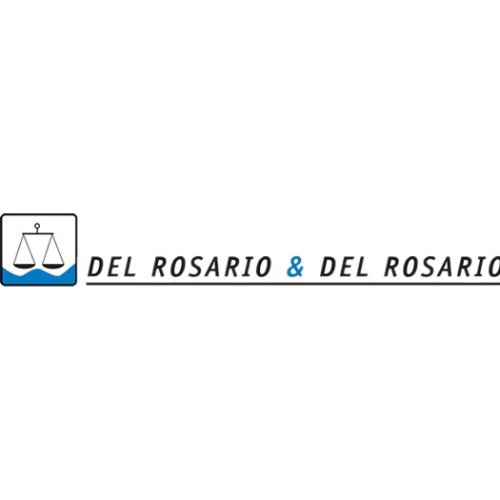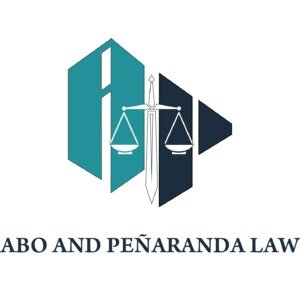Best Nonprofit & Charitable Organizations Lawyers in Taguig
Share your needs with us, get contacted by law firms.
Free. Takes 2 min.
List of the best lawyers in Taguig, Philippines
About Nonprofit & Charitable Organizations Law in Taguig, Philippines
In Taguig, Philippines, nonprofit and charitable organizations are integral to community development and social services. These entities, often referred to as NGOs (Non-Governmental Organizations), aim to address various societal issues such as education, health, poverty alleviation, and more. They operate with special legal recognition and status, which exempts them from certain taxes and allows them to receive charitable contributions. Understanding the legal implications and requirements to operate in this field is essential for compliance and effective functioning.
Why You May Need a Lawyer
People involved with nonprofit and charitable organizations in Taguig may require legal assistance for several reasons. Common situations include:
- Establishing a nonprofit organization, which involves legal documentation, registration processes, and compliance with local and national laws.
- Ensuring ongoing compliance with regulatory requirements, such as tax obligations and annual reporting.
- Dealing with contractual issues, both with donors and service providers.
- Resolving disputes within the organization or with external entities.
- Advising on governance structures and board responsibilities.
- Navigating employment law as it applies to hiring staff and volunteers.
- Protecting intellectual property, such as organization's name and logo.
Local Laws Overview
In Taguig, nonprofit organizations must adhere to both national laws of the Philippines and local governance standards. Key aspects include:
- Registration: Nonprofit organizations must be registered with the Securities and Exchange Commission (SEC) in the Philippines.
- Tax Exemptions: Registered charities might be eligible for tax exemptions on income, provided they comply with requirements set by the Bureau of Internal Revenue (BIR).
- Reporting and Compliance: NGOs must submit annual financial statements and reports to both the SEC and the BIR.
- Permits and Licenses: Additional permits may be needed for certain activities, especially fundraising events.
- Local Taxes: Compliance with local tax ordinances is required, which may vary depending on the location within Taguig.
Frequently Asked Questions
What is the first step in forming a nonprofit organization in Taguig?
The first step is to draft the organization's Articles of Incorporation and By-Laws, which must be submitted to the SEC for approval.
Are nonprofit organizations taxed in the Philippines?
Nonprofit organizations are generally exempt from income tax, but they must apply for accreditation with the BIR to enjoy these benefits.
What roles do the board of trustees play in a nonprofit organization?
The board of trustees is responsible for governance, setting policies, and ensuring the organization complies with legal and ethical standards.
How often must a nonprofit submit financial statements?
Annually. Financial statements must be completed and submitted to the SEC and the BIR each year.
Can a nonprofit organization engage in business activities?
Yes, but these activities should be related to the organization's primary charitable purpose and the profits must be used to further that purpose.
What happens if a nonprofit fails to comply with reporting requirements?
Failure to comply can result in penalties, the revocation of tax-exempt status, or even the dissolution of the organization.
Is employing paid staff in a nonprofit organization allowed?
Yes, nonprofits can hire paid staff and must comply with labor laws in the Philippines concerning wages, benefits, and working conditions.
How can a nonprofit raise funds legally?
Nonprofits must apply for a permit from the Department of Social Welfare and Development (DSWD) for fundraising activities.
What is an NGO in the context of the Philippines?
NGOs, or Non-Governmental Organizations, are non-profit groups that operate independently of the government, often aiming to address social or political issues.
Does a nonprofit need an official office in Taguig?
While not mandatory, having a registered office in Taguig is beneficial for regulatory compliance and community presence.
Additional Resources
There are several resources and organizations that can assist those in the nonprofit sector in Taguig:
- Securities and Exchange Commission (SEC): Main regulatory body for nonprofits.
- Bureau of Internal Revenue (BIR): Handles tax-related matters for nonprofits.
- Department of Social Welfare and Development (DSWD): Issues permits for public solicitation and fundraising.
- Taguig City Local Government: Provides local ordinances and support for community-based organizations.
- Philippine Council for NGO Certification (PCNC): Accredits NGOs for tax-deductible status.
Next Steps
If you require legal assistance with your nonprofit organization in Taguig, consider the following steps:
- Consult with a lawyer who specializes in nonprofit and charitable organization law in the Philippines.
- Reach out to local government offices or the SEC for guidance on compliance and registration procedures.
- Contact professional associations or networks that can provide support or advice based on their experience.
- Prepare all necessary documentation, including financial records and legal papers, to ensure compliance and facilitate any legal processes.
- Stay informed about changes in legislation and best practices in nonprofit management.
Lawzana helps you find the best lawyers and law firms in Taguig through a curated and pre-screened list of qualified legal professionals. Our platform offers rankings and detailed profiles of attorneys and law firms, allowing you to compare based on practice areas, including Nonprofit & Charitable Organizations, experience, and client feedback.
Each profile includes a description of the firm's areas of practice, client reviews, team members and partners, year of establishment, spoken languages, office locations, contact information, social media presence, and any published articles or resources. Most firms on our platform speak English and are experienced in both local and international legal matters.
Get a quote from top-rated law firms in Taguig, Philippines — quickly, securely, and without unnecessary hassle.
Disclaimer:
The information provided on this page is for general informational purposes only and does not constitute legal advice. While we strive to ensure the accuracy and relevance of the content, legal information may change over time, and interpretations of the law can vary. You should always consult with a qualified legal professional for advice specific to your situation.
We disclaim all liability for actions taken or not taken based on the content of this page. If you believe any information is incorrect or outdated, please contact us, and we will review and update it where appropriate.
















